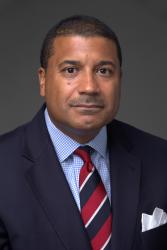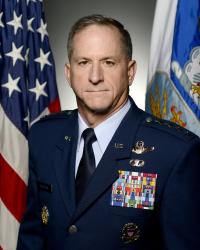

LIVE
Toward reimagined global financial architecture: Progress and challenges11:00 am EDT - 12:00 pm EDT
Past Event
On July 1, outgoing Chief of Staff of the Air Force General David Goldfein joined Brookings Senior Fellow and Director of Research for Foreign Policy Michael O’Hanlon and Senior Fellow Frank Rose for a conversation on the state of the Air Force, how it is maintaining an edge over its great power rivals, and what changes are in store for the future. General Lori Robinson, a friend and former colleague of Gen. Goldfein and a nonresident senior fellow at Brookings, introduced him as “an airman’s airman” with an unsurpassed passion for the Air Force. O’Hanlon then asked how the Air Force has evolved in recent years.
Explaining that the force has conducted about 2,000 war game scenarios involving China, Gen. Goldfein outlined four areas of emphasis gleaned from these exercises, to build a force able to “compete, deter, and if deterrence fails, win” even the most stressing scenarios: Space superiority; increased connectivity; a hybrid force that can “penetrate, persist, proliferate, protect, and punish the adversary;” and an operating assumption that logistics will be under attack. Investing in these areas has meant phasing out the old and focusing on digital engineering and data as “the currency of future warfare.”
O’Hanlon then prompted Gen. Goldfein to elaborate on the ideas he finds most important, such as the concept of multi-domain operations. Noting that the military has moved from Multi-Domain Operations to Joint All Domain Command and Control, Gen. Goldfein explained that this “acronym soup” is really “all one and the same.” The idea is that the days of sequential warfare are over, and the future of warfare will require operating at machine speeds. “Time is going to be the key attribute that we’re going to have to master,” he said.
O’Hanlon then asked where, in the absence of budget growth, defense spending could be cut. Gen. Goldfein emphasized the need for improving command and control networks via digital engineering and data architecture: “I need highways, I need resilient pathways to communicate, to change the cost curve, because right now it is so much more expensive to defend than it is to attack.” Likewise, saving money requires retiring expensive individual planes within various squadrons.
Moving to nuclear modernization and outer space, Rose asked why Gen. Goldfein believes the United States should continue with its current, controversial modernization program. Gen. Goldfein pointed to Russia – a country that has modernized ahead of us – arguing that we cannot unilaterally disarm when we get nothing in return. Likewise, we cannot give up our second-strike capability, since the ability to strike back is “the foundation of deterrence.” In terms of modernization with specific aircrafts, Gen. Goldfein noted how well the B-21 program is going and remarked that the F-35 and KC-46 planes are operating very well. “[The KC-46 is] going to be a significant part of the network that we’ve been talking about,” he said.
Regarding outer space, Rose then asked what steps should be taken to ensure effective coordination and integration between the Air Force and Space Force. Noting that his opinion has changed, Gen. Goldfein discussed how it became clear to him that it was the right time to build a space force, and that his job since has been “to find the sweet spot between maintaining that integration of joint-war fighting between air and space” while allowing this new service to establish its own culture. Working “hand-in-hand” with General Jay Raymond, chief of Space Operations, Gen. Goldfein stressed his focus on making this new service successful.
Finally, the importance of improving diversity in the Air Force was a common thread throughout the discussion. In the wake of the domestic outcry following the killing of George Floyd, Gen. Goldfein remarked that the Air Force had been doing a lot to become more diverse, “but I think we have the opportunity in front of us right now to put on the gas and really move forward.” Especially given the Air Force’s diverse mission, it should be the “very best in the world” in terms of diversity, he urged, which is why they are working on “long-term, aggressive measures” to ensure a culture of inclusiveness, including the “largest overhaul of the officer development and promotion system in the history of the Air Force.”
Panelist




Michael E. O’Hanlon, Constanze Stelzenmüller, David Wessel, Alejandra Rocha, Sophie Roehse, Mallika Yadwad
April 15, 2024

Jacob Larson, James S. Denford, Gregory S. Dawson, Kevin C. Desouza
March 26, 2024
2024
The Brookings Institution, Washington DC
2:00 pm - 3:00 pm EDT